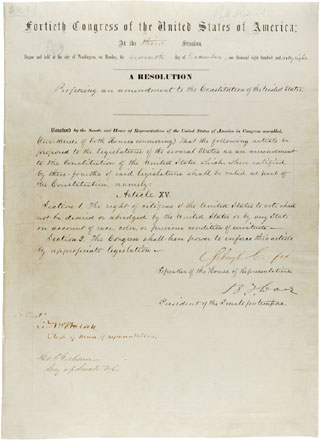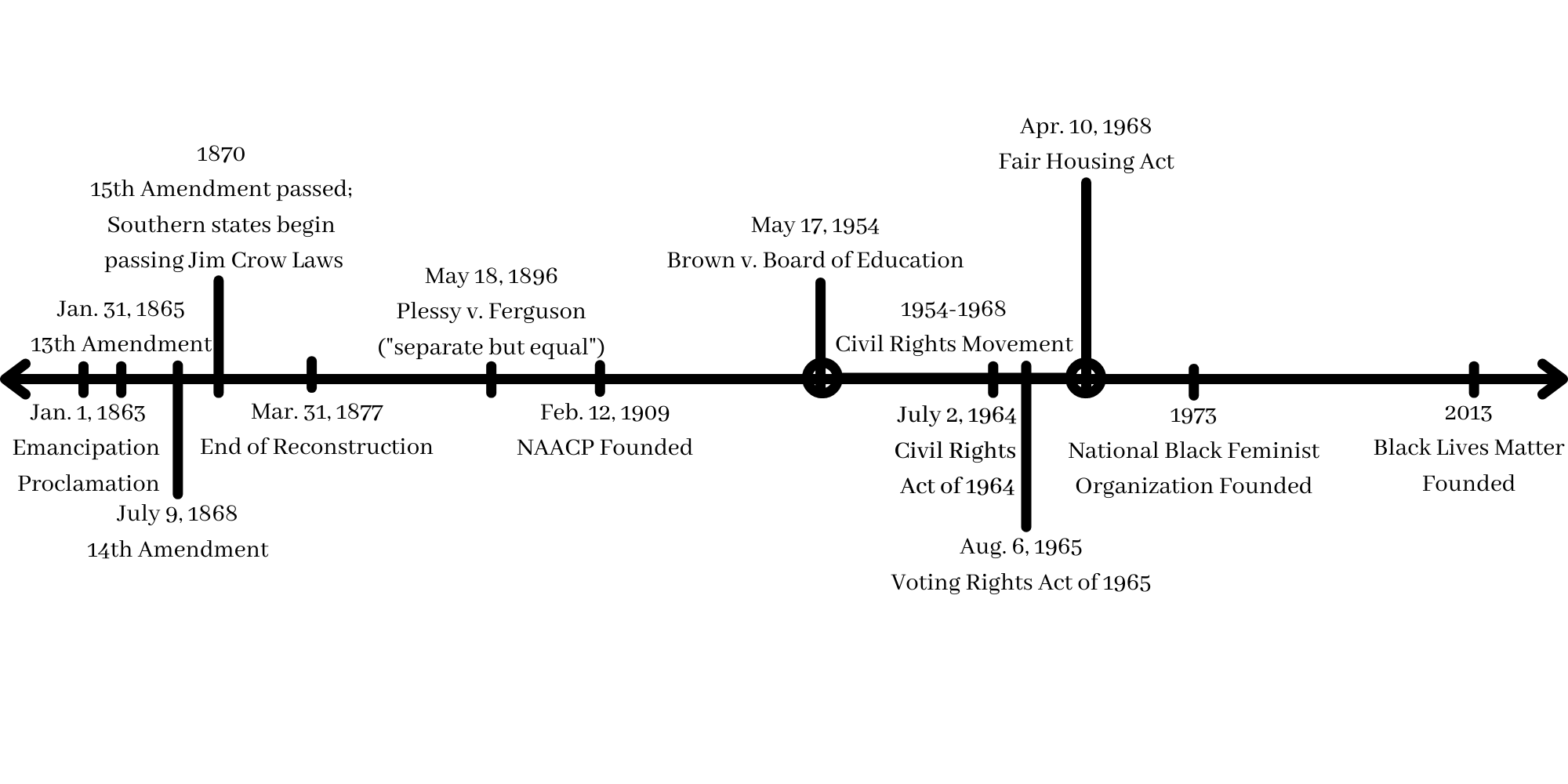
Civil Rights Movement (1960s)
Anti-Defamation League
After the Emancipation Proclamation, there were three Amendments made to the Constitution that increased the rights of the freed slaves:
1. The 13th Amendment was passed by Congress on January 31, 1865, and was ratified on December 6th of the same year. The 13th Amendment abolished slavery and involuntary servitude in the United States (except as punishment for a crime), officially freeing all American slaves.
2. Later, the 14th Amendment was passed by Congress in June 1866 and ratified on July 9, 1868, during the presidency of President Andrew Johnson. The 14th Amendment further extended the freedoms of former slaves, stating that everyone born in the United States had "equal protection under the laws."
3. Finally, in 1870, following the passing of the presidency from Johnson to Grant, the 15th Amendment was ratified on February 3rd. This was the biggest step towards equality so far, as it gave the right to vote to all men, no matter their "race, color, or previous condition of servitude."
The Emancipation Proclamation paved the way for the United States to take these three huge steps on the road to equality.

13th Amendment to the Constitution
National Archives

14th Amendment to the Constitution
National Archives

15th Amendment to the Constitution
National Archives
The Failure of Reconstruction - Bobblehead George
YouTube

Majority of Dates from History; timeline made by Jillian Mills using Canva.com
The travesty of slavery may be dead and gone in America, but even today, in 2021, black people and other people of color continue to face persecution and discrimination. Although we have taken great strides as a nation in to create legislation and organizations to combat this, including the Emancipation Proclamation and the three amendments listed above, the problems continue. With the Civil Rights Movement in the 20th century and the Black Lives Matter Movement that exists today, the majority of the American people have shown their desire for equality and peace. We still have a ways to go to reach that point, but the mere fact that these movements have been founded and fought for is evidence enough for the growing call for change in America today.

Civil Rights Movement (1960s)
Anti-Defamation League

Black Lives Matter Movement (2016)
National Public Radio